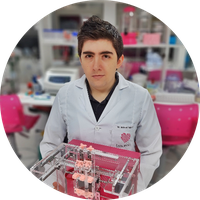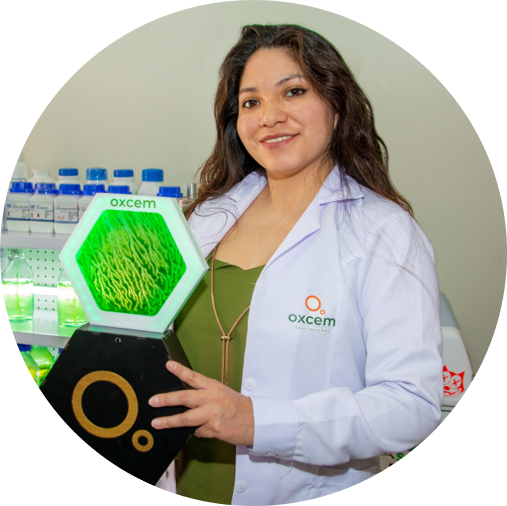Cities are major contributors to the climate crisis, consuming 78% of the world's energy and producing more than 60% of greenhouse gas emissions, according to the UN. And they generate this huge environmental impact despite the fact that they cover less than 2% of the Earth's surface. Faced with this challenge, the young Peruvian biotechnology engineer Athali Castro decided to apply her scientific knowledge to tackle the problem.
She found her answer in nature itself, specifically in microalgae and its ability to trap carbon dioxide. Her approach takes the form of carbon sinks using algae bioreactors to absorb carbon in the air of large cities. This sequestration of atmospheric carbon dioxide is carried out by another natural process: photosynthesis. For this breakthrough, Castro has been chosen by MIT Technology Review in Spanish as one of the winners of Innovators under 35 Latin America 2020.
To launch her project, Castro founded Oxcem, a biotech company that solves environmental problems through solutions inspired by nature. Its microalgae modules fix the carbon present in the air and release oxygen in exchange. In addition, they are specially designed for urban areas where there is little space to plant trees. Each module occupies just one square meter and generates the same amount of oxygen as 100 trees.
"We are not taking strong enough measures to tackle the climate crisis. The carbon footprint is increasing and there are no public policies to reduce it. In researching the problem, I discovered that at the beginning of the Earth's history, the concentration of carbon dioxide was 100 times higher. Microalgae and cyanobacteria absorbed it and converted it into oxygen. For me, the most natural solution is to use what has worked in the past and apply it on an everyday basis. The pandemic showed us that stopping everything generates unemployment and misery. Stopping the economy is not an option, but it is possible to absorb pollution without giving up our way of life. With the microalgae bioreactors, we are trying to reduce the impact of the climate crisis," the young woman explains.
Her modules are already on the streets of Lima, Peru and she hopes that the companies themselves will buy them to offset the emissions from their activities. She also hopes to scale up the project so that the modules are not only on city streets and avenues but also form part of the structure of buildings. "We don't want it to be a one-off, but rather to become part of the urban structure," as is already the case in some buildings in Germany.
Enrique Galindo, secretary of Outreach at the Institute of Biotechnology of the National Autonomous University of Mexico (UNAM) and member of the jury of Innovators under 35 Latin America 2020, considers "the idea of making algae-based modules for carbon dioxide consumption and oxygen generation available on the market to be "original." The expert believes that "this project will be successful among people and companies that want to make themselves stand out by using products that will help offset their carbon footprint."




